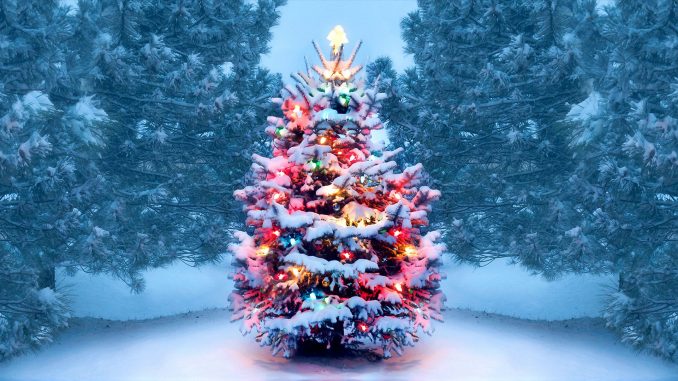
December Global Holidays 2022: What You Need To Know
December is a month of holidays for many people around the world. Christmas, Hanukkah, and Kwanzaa are some of the more well-known ones, but there are plenty of other holidays that take place during this month. In this blog post, we will explore some of the global holidays that take place in December and what you need to know about them. From Christmas in Japan to Hanukkah in Israel, read on to learn more about how different cultures celebrate this festive time of year. December is a month full of holidays all around the world. From Christmas and Hanukkah to Kwanzaa and Boxing Day, there are celebrations happening in almost every corner of the globe. But what do these December global holidays actually entail? How do they differ from one another? And what should you know if you’re planning on celebrating them? In this blog post, we will explore some of the most popular December global holidays and what you need to know about them. From traditions and history to food and drink, we’ll cover everything you need to get into the holiday spirit!
December is a month of holidays for many cultures around the world. Here are some of the December global holidays that you should be aware of in 2022: -Chanukah (Jewish): December 2-10 -Christmas (Christian): December 25 -Kwanzaa (African American): December 26-January 1 -New Year’s Eve: December 31
What Is the Importance of Decembers Global Holidays?
There are a few key holidays in December that are celebrated globally. Here’s what you need to know about each one:
Christmas: Christmas is celebrated on December 25th and is a religious holiday commemorating the birth of Jesus Christ. Christians around the world celebrate by attending church services, exchanging gifts, and spending time with family and friends.
Hanukkah: Hanukkah is an 8-day Jewish holiday that starts on the 25th day of Kislev (which falls in November or December). It commemorates the victory of the Maccabees over the Syrian Greeks and the re-dedication of the Holy Temple in Jerusalem. Jews celebrate by lighting candles on a special candelabra called a menorah, eating fried foods, and playing games.
Kwanzaa: Kwanzaa is a 7-day African-American holiday that starts on December 26th. It celebrates African culture and heritage, and includes principles such as unity, self-determination, and collective work and responsibility. Families often get together for feasts and gift giving during this time.
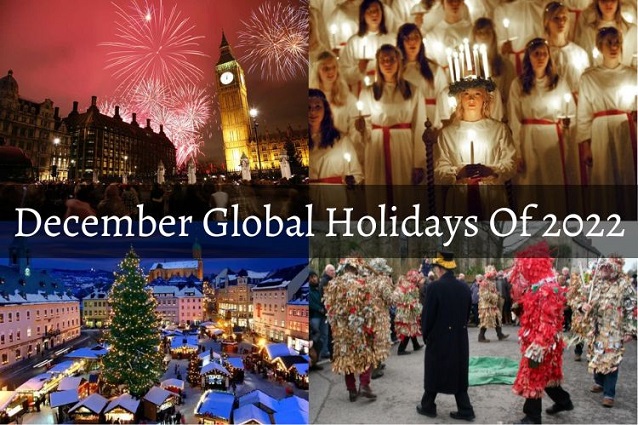
December global holidays List 2022
| 1. Hanukkah 2022 | December 18th – December 26th |
| 2. World AIDS Day | December 1st |
| 3. Krampusnacht | December 5th |
| 4. Bodhi Day | December 8th |
| 5. Feast of the Immaculate | December 8th |
| 6. Human Rights Day | December 10th |
| 7. St. Lucia’s Day | December 13th |
| 8. Las Posadas | December 16th – 24th |
| 9. International Human Solidarity Day | December 20th |
| 10. Winter Solstice | December 21st |
| 11. Christmas Eve | December 24th |
| 12. Christmas | December 25th |
| 13. Boxing Day | December 26th |
| 14. St. Stephen’s Day | December 26th |
| 15. Kwanza | Dec 26th – 1st Jan |
| 16. New Year’s Eve | December 31st |
December is a month of celebration and joy around the world. From Christmas and Hanukkah to Kwanzaa and New Year’s Eve, there are plenty of holidays to enjoy. Here’s a list of some of the most popular global holidays in December:
– Christmas: December 25th is Christmas, one of the most popular holidays in the world. Christians celebrate the birth of Jesus Christ, while others simply enjoy the festive atmosphere.
– Hanukkah: Also known as the Festival of Lights, Hanukkah is celebrated by Jews around the world. It lasts for eight nights, starting on the 25th day of Kislev (which falls in November or December).
– Kwanzaa: This African-American holiday celebrates family, community and culture. It runs from December 26th to January 1st each year.
– New Year’s Eve: Many cultures celebrate new beginnings on December 31st/January 1st. Fireworks, parties and champagne are all part of the fun!
Hanukkah (December 18th – 26th)
Hanukkah, also known as the Festival of Lights, is an eight-day Jewish holiday commemorating the rededication of the Holy Temple in Jerusalem following the Maccabean Revolt of the 2nd century BCE. Celebrated annually on the 25th day of Kislev, Hanukkah begins on the eve of December 18th and ends on the evening of December 26th. The holiday is observed by lighting candles each night of Hanukkah, performing special prayers and readings from the Torah, eating fried foods (such as latkes and jelly donuts), and exchanging gifts.
Hanukkah is a joyous holiday that is celebrated by Jews all over the world. The holiday commemorates a miraculous event that occurred over two thousand years ago when a small group of Jewish warriors (known as the Maccabees) defeated a much larger army. After reclaiming the Holy Temple in Jerusalem, they found only enough oil to light the menorah (a seven-branched candelabra) for one day. Miraculously, that small amount of oil lasted for eight days, until more could be procured. This miracle is celebrated each year during Hanukkah by lighting candles each night for eight nights.
In addition to celebrating this miracle, Hanukkah is also a time for giving thanks and exchanging gifts. On each night of Hanukkah, it is customary to exchange small presents with family and friends

World AIDS day- December 1
Each year, World AIDS Day is observed on December 1st to raise awareness about HIV and AIDS. The day also serves as a reminder of the need to continue fighting the spread of HIV and to provide support for those who are living with the virus.
In 2015, World AIDS Day will be observed under the theme “Getting to Zero: Zero new HIV infections. Zero discrimination. Zero deaths from AIDS.”
The goal of World AIDS Day is to bring attention to the global HIV/AIDS epidemic and to show solidarity with those who are living with the virus. There are many ways that you can get involved in observing WorldAIDS Day. Here are some ideas:
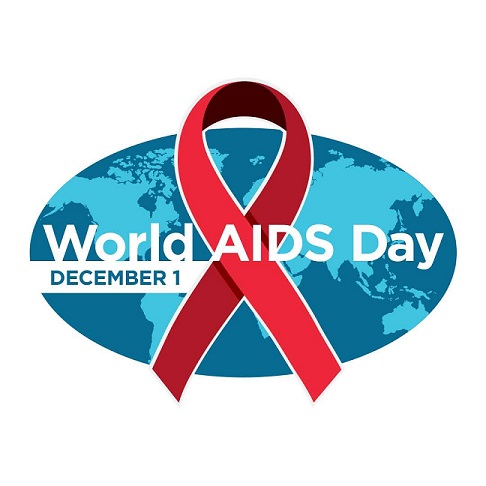
Krampusnacht- December 5th
Krampusnacht, or the Night of Krampus, is celebrated in parts of Europe on December 5th. The holiday is named after the mythical creature Krampus, who is said to punish children who have been naughty. In some European countries, such as Austria and Germany, people dress up as Krampus and roam the streets on Krampusnacht. Other traditions include lighting bonfires and exchange gifts.
Krampusnacht is a festive occasion celebrated in parts of Central Europe on December 5th. The holiday is named after the mythical creature Krampus, who is said to punish children who have been naughty.
In some regions, Krampusnacht is celebrated with processions of people dressed as Krampus, while in others it is more low-key, with simply the exchanging of Krampus cards. Whatever the celebration looks like, it typically includes feasting and drinking.
If you’re lucky enough to be in a place that celebrates Krampusnacht, make sure to enjoy the festive atmosphere and maybe even dress up as the mischievous creature yourself!
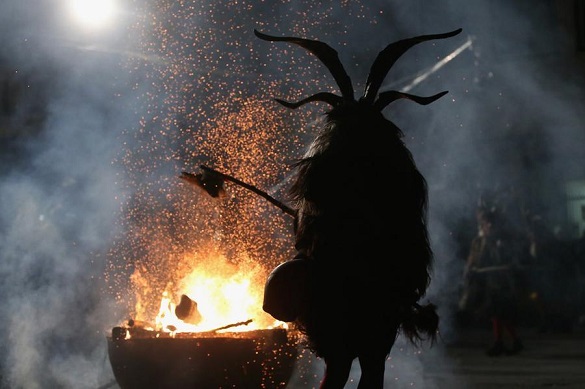
Bodhi Day- December 8
Bodhi Day, which is also known as Rohatsu, commemorates the day that Siddhartha Gautama attained enlightenment under the Bodhi tree. In Mahayana Buddhism, it is also seen as the anniversary of the Buddha’s nirvana. On this day, Buddhists reflect on the Buddha’s teachings and strive to live in accordance with his example. Many people also take this opportunity to meditate and perform other spiritual practices.
Bodhi Day commemorates the day that Siddhartha Gautama, the founder of Buddhism, attained enlightenment. It is celebrated on December 8th in countries with a large Buddhist population, such as China, Japan, Korea, Taiwan, Vietnam, and Sri Lanka. In addition to religious observances, many people take part in other activities to mark the occasion, such as giving gifts, decorating their homes with lights and lanterns, and eating special foods.
Buddhists believe that Siddhartha Gautama achieved nirvana when he attained enlightenment under a bodhi tree. Nirvana is a state of perfect peace and freedom from suffering. On Bodhi Day, Buddhists reflect on the principles of Buddhism and strive to live in a way that will lead them to nirvana.
There are many different ways to celebrate Bodhi Day. Some people meditate or do yoga as a way to connect with their inner selves and achieve peace. Others may choose to spend time reading Buddhist texts or visiting temples. Some people also give gifts to friends and loved ones as a way of spreading happiness and goodwill.
No matter how you choose to celebrate it, Bodhi Day is a time to reflect on the importance of living a good life and striving for nirvana.
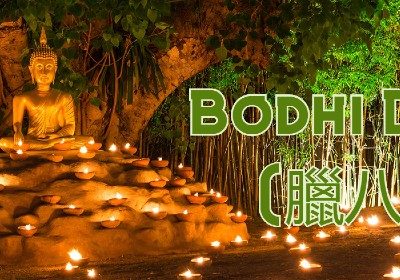
Feast of the Immaculate- December 8
In the Catholic Church, the Feast of the Immaculate Conception is celebrated on December 8th. It commemorates the belief that Mary, the mother of Jesus, was conceived without original sin. The holiday is a major feast day in many countries, and is a holy day of obligation in the United States.
The Feast of the Immaculate is December 8 and celebrates Mary, mother of Jesus Christ. This holiday is also known as the Nativity of the Blessed Virgin Mary or The Conception of Mary. It is a public holiday in many countries including Argentina, Bolivia, Chile, Colombia, Costa Rica, Cuba, Ecuador, El Salvador, Guatemala, Honduras, Italy, Mexico, Nicaragua, Panama, Paraguay, Peru, Philippines, Puerto Rico , Uruguay and Venezuela.
In the United States the Feast of the Immaculate is not a federal holiday but is still celebrated by many Catholics.
The feast day commemorates two events in Mary’s life: her immaculate conception (that is without original sin) and her nativity (or birth). It is believed that Mary was born without sin because she was destined to be the mother of Jesus Christ who would take away the sins of mankind.
The Feast of the Immaculate Conception is a very important day for Catholics as it reminds them that even though they are sinners themselves they can still be saved through God’s grace. It also teaches them that no matter how bad their own personal sin might be – it can never compare to the original sin committed by Adam and Eve in paradise which caused all humans to inherit a sinful nature.
On this feast day Catholics attend mass and give thanks to God for His great gift of salvation through Jesus Christ and His perfect Mother Mary. Many people also visit Marian shr
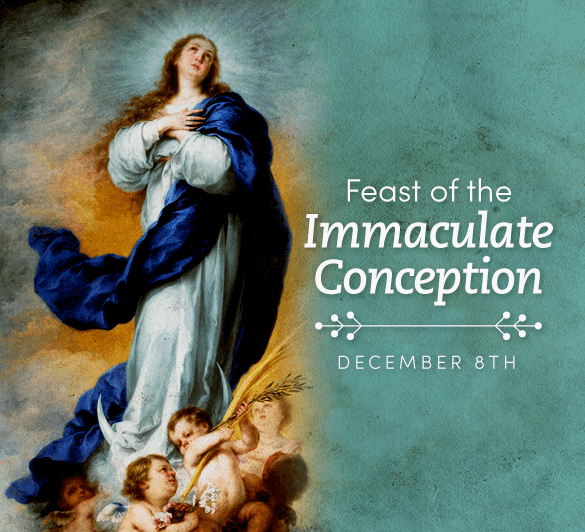
Human Rights Day- December 10
December 10 is Human Rights Day, which commemorates the day on which the United Nations General Assembly adopted the Universal Declaration of Human Rights in 1948. The Universal Declaration of Human Rights is a document that set out the fundamental human rights that everyone is entitled to, regardless of race, gender, nationality, or any other status.
Human Rights Day is an opportunity for everyone to reflect on the progress that has been made in promoting and protecting human rights around the world, and to recommit to working towards a future in which everyone can enjoy their full human rights.
There are many events and activities held around the world on Human Rights Day. Some people use the day to raise awareness about human rights issues, while others use it to celebrate progress that has been made in protecting human rights. Whatever way you choose to mark Human Rights Day, it is a chance to stand up for our shared humanity and make sure that everyone enjoys their basic human rights.
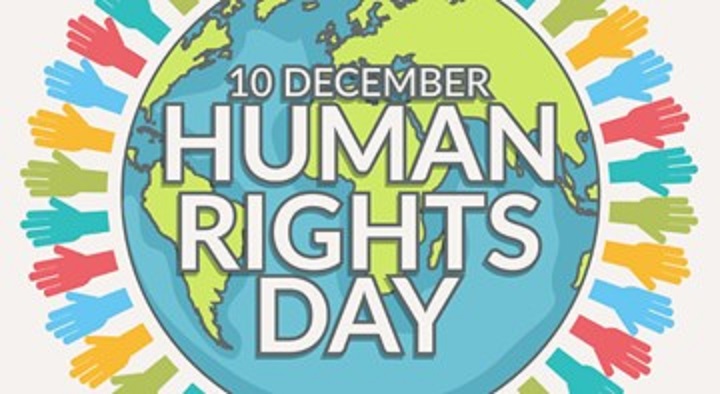
St. Lucia’s Day- December 13
St. Lucia’s Day is celebrated on December 13 in Sweden, Norway, Denmark, and Finland. The holiday commemorates St. Lucia, a Christian martyr who was killed by the Romans in 304 AD.
On St. Lucia’s Day, people dress up in white robes and wear crowns of candles on their heads to symbolize the light of Christ. In Sweden, a girl is chosen to be “Lucia” and leads a procession of other girls carrying candles. The Lucia tradition is thought to have originated in Sicily, where there was a similar festival honoring Saint Lucy.
In Scandinavia, St. Lucia’s Day is a time to enjoy special foods like lussekatter (saffron buns), glogg (mulled wine), and rice pudding with almond flakes. It’s also a day when families and friends get together to celebrate the beginning of Christmas season.
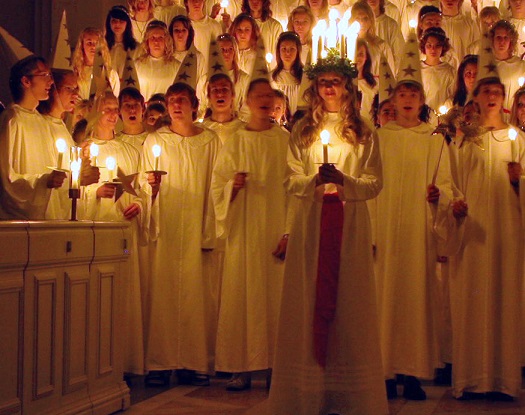
Las Posadas- December 16 – 24
Las Posadas is a nine-day Mexican holiday that commemorates the journey of Mary and Joseph to Bethlehem. The celebration starts on December 16 and ends on Christmas Eve. Las Posadas is celebrated with processions, piñatas, food, and music.
On the first night of Las Posadas, a procession takes place. Participants dress up as Mary and Joseph and carry candles while they walk from house to house. At each house, they sing a song called “La Marcha de los Reyes” which tells the story of the journey to Bethlehem. People in the houses welcome the procession and offer them food and drink.
The next day, December 17, is known as “Día de La Candelaria” or “Candlemas Day”. On this day, people exchange gifts and eat foods made with berries and cream.
December 18 is “Posada Day”. This is when people build large wooden structures called “posadas” in their yards. The posadas are decorated with greenery and lights, and they have a hole in the bottom for a piñata. On Posada Day, people take turns hitting the piñata until it breaks open and candy falls out.
December 19 is “Strawberry Day”. On this day, people eat strawberries dipped in chocolate.
December 20 is “Taco Day”. People eat tacos filled with meat, cheese, or vegetables.
December 21 is “Ponche

International Human Solidarity Day- December 20
International Human Solidarity Day is celebrated every year on December 20. The day was established by the United Nations General Assembly in 2005 to “promote and inspire worldwide solidarity in the pursuit of common goals, including the promotion and protection of human rights and fundamental freedoms”.
The day is an opportunity for people all over the world to come together and celebrate our shared humanity. It is also a time to reflect on what we can do to build a more just and equitable world.
There are many ways to get involved with International Human Solidarity Day. You can join or start a solidarity action in your community, participate in online events or discussion, or simply take a moment to reflect on the importance of human solidarity.
No matter how you choose to celebrate, International Human Solidarity Day is a reminder that we are all in this together. We stand united in our diversity and we must work together to create a world that is fair for everyone.
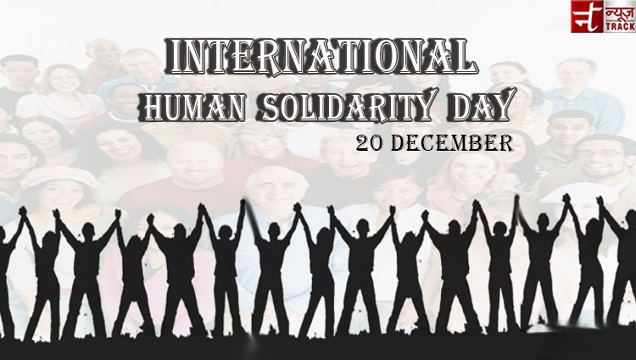
Winter Solstice- December 21
Winter Solstice is the shortest day and longest night of the year. It is traditionally a time for introspection and reflection, and for many people, it is a time to celebrate the coming of winter. For Pagans and Wiccans, the Winter Solstice is one of the most important days of the year, as it marks the return of the sun and the beginning of a new cycle. Many people who celebrate the Winter Solstice do so by decorating their homes with evergreen boughs and holly, and by giving gifts to loved ones.

Christmas Eve- December 24
Christmas Eve is celebrated in many countries around the world on December 24. It is the eve of Christmas Day, which is celebrated on December 25. Christmas Eve is a time for families to come together and exchange gifts.
Christmas Eve is celebrated around the world on December 24th. It’s a time to spend with family and loved ones, exchange gifts, and enjoy holiday traditions. For many, it’s also a time to reflect on the year that has passed and look forward to the one ahead.
No matter how you celebrate Christmas Eve, it’s sure to be a special day. Read on to learn about some of the most popular Christmas Eve traditions from all over the globe.
In Mexico, Nochebuena (Christmas Eve) is celebrated with a feast of traditional foods like tamales, pozole, and buñuelos. Families gather together for mass and midnight dinner, then stay up late into the night chatting and enjoying each other’s company.
In Italy, Christmas Eve is known as La Vigilia (The Vigil). It’s customary to have a meatless dinner on this night, as a way of preparing for the feasting that will take place on Christmas Day. After dinner, many Italian families attend Midnight Mass before heading home to open their presents.
In Poland, Wigilia (Christmas Eve) is traditionally observed as a day of fasting. A special meal is served in the evening, which typically includes 12 different dishes symbolizing the 12 apostles. After supper, families often attend Midnight Mass or share stories and poems around the Christmas tree.
Whatever your plans are for Christmas Eve, make sure to take some time to enjoy the festive atmosphere
Christmas- December 25
Christmas is celebrated on December 25th by Christians around the world. The holiday commemorates the birth of Jesus Christ and is typically marked by religious observances, gift-giving, and special meals.
In many countries, Christmas is also a time for family gatherings and festive activities. Popular Christmas traditions include decorating homes and workplaces with festive displays, exchanging gifts, attending church services, and enjoying holiday foods and drinks.
If you are traveling during the Christmas season, it is important to be aware of how the holiday is celebrated in different parts of the world. Some countries may have public holidays that last for several days, while others may only have one or two days off from work. In some cases, Christmas Eve or Boxing Day may be celebrated instead of or in addition to December 25th.
When packing for your trip, be sure to include any items you might need for celebrating Christmas in your destination country. A small tree or wreath, some lights, and a few decorations can go a long way towards making your holiday feel special. And don’t forget to pack your favorite holiday recipes so you can enjoy a taste of home no matter where you are!

Boxing Day- December 26
Boxing Day, or December 26th, is a holiday celebrated in many countries around the world. It is typically a day to give gifts to those in need, or to exchange presents with family and friends.
In some countries, Boxing Day is also a public holiday, and people have the day off from work. This can be a great time to spend with family, or to get out and enjoy the winter weather. Whether you celebrate Boxing Day or not, it’s important to be aware of how it’s observed around the world.
In the United Kingdom, Boxing Day is a bank holiday, and falls on the first weekday after Christmas Day. Traditionally, it was a day for servants and tradespeople to receive gifts from their employers. Nowadays, it’s more common for people to take part in charitable acts, such as donating to food banks or giving money to those less fortunate.
In Australia, Boxing Day is also a public holiday. It’s a day for people to relax and recover from all the Christmas festivities. Many Australians take advantage of the day off by heading to the beach or spending time outdoors. Some retailers also offer sales and special deals on Boxing Day.
In Canada, Boxing Day is not a statutory holiday nationwide. However, it is recognized as a national holiday in some provinces and territories. In Quebec, for example, most businesses are required to close on Boxing Day. In other parts of Canada

St. Stephen’s Day- December 26
In the Christian calendar, December 26 is the feast day of Saint Stephen, celebrated annually. Stephen was one of the first seven deacons ordained by the apostles in Jerusalem. He was also a protomartyr, meaning he was the first Christian martyr. As told in Acts 6-7, Stephen was accused of blasphemy by members of the Jewish Sanhedrin and stoned to death.
Today, Saint Stephen’s Day is primarily celebrated in Catholic and Orthodox countries. In Ireland, it is a national holiday and often called “Wren Day.” On this day, people go door-to-door singing about the death of a wren (a small bird). A tradition says that a wren betrayed Saint Stephen’s hiding place to his enemies, leading to his capture and execution.
In Hungary, Saint Stephen’s Day is known as “Little Christmas” because it marks the end of the Advent season. Families gather for large meals and exchange gifts. And in Germany, Saint Stephen’s Day is when children leave their shoes out overnight so that St. Nick can fill them with sweets come morning.
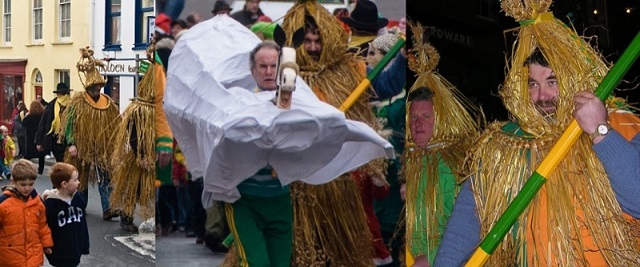
Kwanza- December 26th – 1st Jan: December Global Holidays
Kwanzaa is a week-long cultural holiday celebrated by people of African descent. It is observed from December 26th to January 1st, and during this time, people reflect on African heritage and culture. Kwanzaa is a time to come together and celebrate family, community, and culture. There are many different ways to celebrate Kwanzaa, but some common traditions include lighting candles, sharing meals, and exchanging gifts.
Kwanza is a global holiday that is celebrated by people of African descent. It is observed from December 26th to January 1st. The holiday commemorates the first fruits of the harvest and is a time for family, friends, and community. Kwanzaa celebrates seven principles: unity, self-determination, collective work and responsibility, cooperative economics, purpose, creativity, and faith.
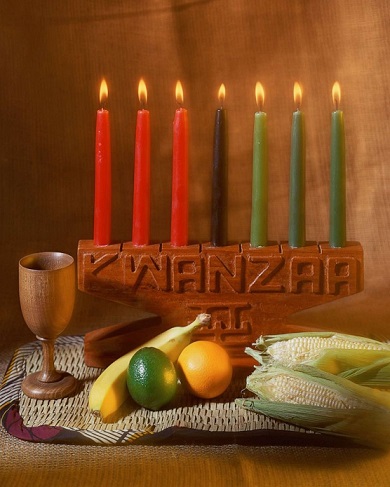
New Year’s Eve- December 31
New Year’s Eve- December 31
No matter where you are in the world, December 31 is a big deal. It’s the last day of the year, and for many people, it’s a time to reflect on the past 12 months and set resolutions for the coming one. If you’re spending New Year’s Eve in a different country, there are some things you should know about how people celebrate.
In most places, New Year’s Eve is synonymous with parties and alcohol. If you want to go out and celebrate, make sure you have your ID with you if you’re planning on drinking. Many bars and clubs will have special events going on, so it’s worth checking ahead of time to see what’s happening.
If you prefer a more low-key celebration, there are plenty of options for that as well. Many people stay home with family or close friends, or go to church services. No matter how you choose to spend New Year’s Eve, be safe and have fun!


